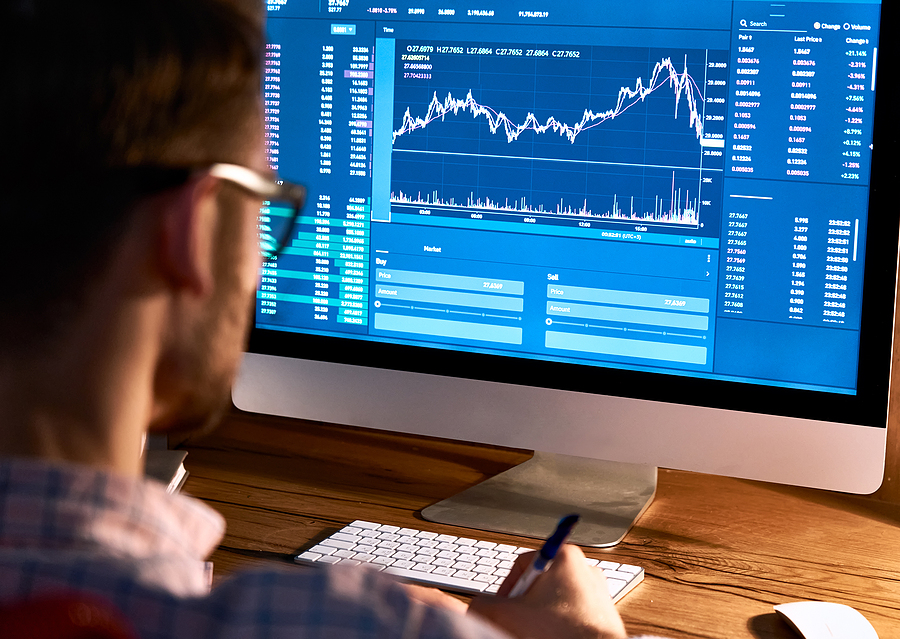Paper trading, also known as simulated trading or virtual trading, is a valuable tool for individuals looking to venture into futures trading. It offers a risk-free environment where traders can practice their strategies, hone their skills, and familiarize themselves with the dynamics of the futures market without putting their capital on the line. In this article, we will explore the various benefits of paper trading in futures and why it is an essential step for both novice and experienced traders. When it comes to trading, you can’t overlook the need for investment education! Visit the main website of Granimator and start learning!
Understanding Paper Trading
Paper trading involves executing trades in a simulated environment that mimics real market conditions without risking real money. Traders are provided with virtual funds to buy and sell futures contracts based on current market prices. This allows them to experience the ups and downs of trading without the fear of financial loss. Unlike live trading, where emotions can often cloud judgment, paper trading enables traders to make rational decisions and focus on refining their strategies.
Platforms and tools for paper trading vary widely, ranging from simple spreadsheet-based systems to sophisticated trading simulators offered by brokerage firms. These platforms provide access to real-time market data, charting tools, and analysis features, allowing traders to simulate trading scenarios and test different strategies in a controlled environment.
Risk-Free Practice
One of the most significant benefits of paper trading is the opportunity to practice trading strategies without risking real capital. Traders can experiment with various approaches, such as day trading, swing trading, or trend following, to see which works best for them. By making mistakes and learning from them in a risk-free environment, traders can develop the skills and confidence needed to succeed in the futures market.
Practicing without financial risk also allows traders to overcome the fear of losing money, which can be a significant barrier for many novice traders. Instead of focusing on potential losses, traders can concentrate on learning and improving their trading skills, ultimately leading to better decision-making and more profitable trades in the long run.
Testing Strategies
Paper trading is an invaluable tool for testing trading strategies in real-market conditions. Traders can simulate various scenarios and analyze the performance of their strategies over time. They can experiment with different entry and exit points, risk management techniques, and position sizing methods to determine which combination yields the best results.
Additionally, paper trading allows traders to backtest their strategies using historical market data. By analyzing past price movements and performance metrics, traders can identify patterns and trends that may help them refine their strategies and make more informed decisions in the future.
Market Simulation
One of the key advantages of paper trading is the ability to simulate real market conditions. Traders can experience the same volatility, liquidity, and price fluctuations they would encounter in live trading, albeit without the associated financial risk. This allows them to gain a better understanding of how the futures market operates and how different factors, such as economic indicators, news events, and geopolitical developments, can impact prices.
By immersing themselves in simulated trading environments, traders can learn to recognize market patterns and trends, identify trading opportunities, and develop the discipline needed to execute their strategies consistently. This hands-on experience is invaluable for traders looking to transition from paper trading to live trading with confidence.
Education and Learning
Paper trading serves as an educational tool for traders of all skill levels. Novice traders can use it to learn the basics of futures trading, including how futures contracts work, how to read price charts, and how to place trades. They can also learn about different asset classes, such as commodities, currencies, and stock indices, and how they are traded in the futures market.
For experienced traders, paper trading offers an opportunity to expand their knowledge and refine their skills. They can explore advanced trading strategies, delve into technical and fundamental analysis, and stay abreast of market trends and developments. By continually learning and adapting their strategies, experienced traders can stay ahead of the curve and maintain a competitive edge in the futures market.
Tracking Progress and Improvement
One of the often-overlooked benefits of paper trading is the ability to track progress and measure improvement over time. Traders can keep detailed records of their trades, including entry and exit points, trade duration, and profit and loss figures. By analyzing this data, traders can identify patterns in their trading behavior, pinpoint areas for improvement, and develop strategies to address them.
Additionally, paper trading allows traders to compare their performance against predefined benchmarks or trading goals. Whether it’s achieving a certain level of profitability, maintaining a consistent win rate, or managing risk effectively, traders can use paper trading as a tool to gauge their progress and adjust their strategies accordingly.
Conclusion
In conclusion, paper trading offers a host of benefits for traders looking to sharpen their skills and improve their performance in the futures market. From risk-free practice and strategy testing to market simulation and education, paper trading provides a valuable opportunity for traders to gain experience, build confidence, and achieve success in the challenging world of futures trading. By incorporating paper trading into their routine, traders can enhance their trading skills, minimize their risk, and maximize their potential for long-term profitability.
Image Source: BigStockPhoto.com (Licensed)
Site Disclaimer
The Content in this post and on this site is for informational and entertainment purposes only. You should not construe any such information or other material as legal, tax, investment, financial, or other advice. Nothing contained on our Site constitutes a solicitation, recommendation, endorsement, or offer by HII or any third party service provider to buy or sell any securities or other financial instruments.
Nothing in this post or on this site constitutes professional and/or financial advice. You alone assume the sole responsibility of evaluating the merits and risks associated with the use of any information or other content in this post or on this site.
You recognize that when making investments, an investor may get back less than the amount invested. Information on past performance, where given, is not necessarily a guide to future performance.
Related Categories: Invest, Reviews






![Anso FG Reviews: 4 Markets You Can Use to Trade in 2024 [ansofg.com] Stock Market Or Forex Trading Graph And Candlestick Chart Suitab](https://incrediblethings.com/wp-content/uploads/2018/12/bigstock-Stock-Market-Or-Forex-Trading-343914151.jpg)
